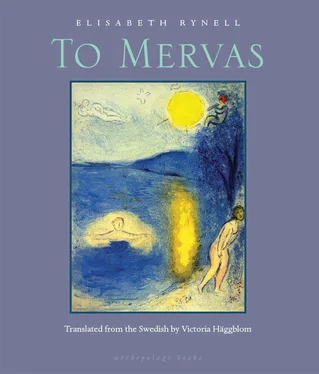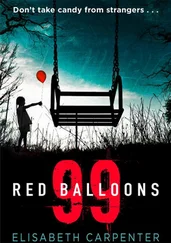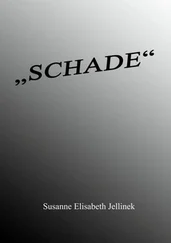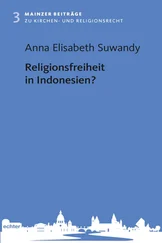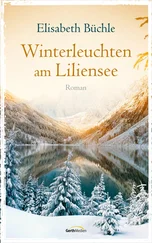There is a quality of precision in life, an incorruptible order that cannot be made relative. Life is relentless the same way death is. Everyone has a place in their own story with a myriad of threads running forward and backward, upward and downward, like a web. If you want to cut yourself loose, you have to cut yourself off from who you are. You can’t just switch your life for another. The details of your existence may be unbearable, but they are nevertheless wrapped up neatly and connected to each other like the threads of the web. Now, afterward, I can acknowledge what I couldn’t see while it was happening: that those last few years with the boy were awful. If I’d been a better person, made differently, I would have asked for help; I would have screamed for help the way I raged and demanded it the day the boy was born and they tried to take him away from me. But I couldn’t speak. Dumbstruck, I believed that the boy was my life, that without him close to me, neither of us would survive. He was as helpless as a fetus, a big, shapeless fetus I nourished with my blood. I lived with him as if I were pregnant and waiting for him to finally be born. That’s how it was.
Yet I believe in free will. Theoretically, I think that even someone like me could have chosen a different fate for the boy and me. But a person’s will has many layers, and some of them may be buried under the earth. I believe in free will, but I also believe in darkness. In the great darkness that in all directions surrounds the tiny sphere of light where we live our lives. I think the dark is real even when we’re lost inside it, even when we can’t see it.
Spring is approaching. Suddenly, light has blown into the evenings and filled them, made them swell and lengthen. I heard such passionate birdsong from a tree behind the parking lot the other afternoon that I thought at least a hundred little birds were sitting among the branches singing and chirping. But no matter how I looked, I couldn’t see a single one. It was as if the birches themselves, still without leaves, were resounding with song.
I went to the boy’s grave today. A white wagtail sat on his tombstone, balancing, so I stayed a few yards away as not to frighten it.
“Welcome, white wagtail,” I whispered. “Are you bringing me a message?”
I couldn’t help myself. It was as if the boy had taken the shape of the bird and was addressing me, touching me. It had been a long time since I had visited his grave. I didn’t even go to the cemetery on All Saints’ Day.
When I walked up to the grave, the wagtail flew away, but it didn’t go far. The whole time I was there, it stayed close, nosily walking around in the grass behind the tombstone. It stayed with me, somehow.
Several crocuses had already come up in the wet, muddy ground, still just buds, but I could see which ones would be yellow and which would become purple. I had brought tulips in different colors and placed them in a vase, which I pushed into the soil.
I don’t usually smoke, but I’ve made it my habit to smoke a cigarette when I visit the boy’s grave. When I’ve arranged things, flowers and such, I crouch down, light a cigarette, and smoke. It’s my way to stay with time, to just sit with time for a little while and let it exist.
Kosti was a smoker. He mostly smoked a pipe, but sometimes cigarettes too. He taught me how to do it. I remember how he used to sit down on a rock or a tree stump while we were doing an excavation and he’d just disappear for a bit, into the clouds of smoke he created. Sometimes I’d walk over to him and ask him for a hit. We’d sit together for a while, in the space the smoke created.
When I’d smoked for a while, I pressed the still glowing cigarette butt into the ground as hard as I could. Down into the boy’s soil. Into the soil that was the boy.
“I can see you,” I whispered before I got up to leave. “I will carry you with me, all the way to Mervas!”
After I’d walked away some distance, I turned around and saw that the wagtail had returned to the top of the boy’s tombstone. This filled me with gratitude. Perhaps also with hope.
I was the one who’d killed the boy. I did it. Sometimes when I stumble around in the dark city that is my life, I find myself standing again in the room where it happened. And it happens again inside the darkness, I do it again and again, and it will never end.
It was on his birthday; on the day he turned fourteen. My sister arranged for the tombstone later. It says Sebastian, and then the dates show his birthday and the day of his death to be the same. At first, it tormented me so much, that the exact dates had to be carved into the stone too; why wasn’t it enough just to mention the years?
I wasn’t present at his funeral. I was wedged into a darkness that had frozen into stone. I was inside that darkness for many years, locked inside my deed. Locked in a moment.
She finally arrived, Marta did, but not in Mervas. Instead, she came to a small village called Deep Tarn, which really wasn’t much of a village since there was only one farm there. Nevertheless, that’s where the sometimes winding, sometimes dead-straight gravel roads finally led her. To Deep Tarn. None of the roads she’d tried to follow led to Mervas. No matter how she’d tried, none of them had let her in, had ever let her reach it by the right road. She was close to Mervas, not there, but she knew it must be close.
It was the third day of her journey and she’d been driving around in the county she hoped was the right one ever since morning. She’d driven on bigger roads and small side roads, she’d passed bogs and empty open places and come into sparse, rolling pine forests with a tarn in every little hollow. She’d come out on clear-cut areas where devastation spread as far as the eye could see; she’d crossed creeks and driven along bubbling, rushing rivers in a seemingly endless wilderness. One single car was all she’d seen the entire day, a grayish black car that had swerved through the gravel and disappeared in a cloud of dust before she had the time to decide whether it was good or bad to meet another person in a place so devoid of human life.
She was often so afraid she wanted to cry. Sometimes her legs shook so much it was hard to accelerate. The car jerked forward as in fear through the endless woods. She was leaning forward, her hands anxiously clutching the wheel, not wanting to admit what she’d gotten herself into.
She was afraid, and her insecurity only grew the farther into this landscape she went. Everything was alien and indecipherable; she was a complete stranger in the landscape that surrounded her for miles and miles on all sides, she knew nothing about the things she saw, knew nothing about the rules that must govern in places like this. Sometimes, when the road brought her to a high point and she could look out over the trees, she saw that the place she’d come to was endless. She was imprisoned by that endlessness, captive in a network of nameless gravel roads, and the farther she drove, the more lost she got.
Once, she stopped and stepped out of the car to look at the scenery. A long, low mountain range stretched in every direction. The silence was immense. It was as if for the first time she understood the true meaning of silence, the complete absence of sound. The silence pressed against her ears the way compact darkness can press against your eyes. She stood listening to the pounding inside her head while her eyes were gliding over the vast landscape, and in awe she let her gaze move gently along the shapes of the giant mountains that continued for as far as she could see. There were lakes out there too, calm, silvery gray sparks in the silence. Everything around her stayed where it was; it was there, it simply existed. Through her fear, she realized that this silence was a powerful language, a mighty voice louder than anything else. She’d never felt as terrifyingly small as she now did. She felt she could be obliterated here, the vastness of the landscape could dissolve her with just a whiff of wind; she’d have to beg the small, dim-green pines for mercy. At the same time, she felt herself growing in the vastness, felt herself being pulled and stretched and filled by it. It was as if she could contain it, could contain everything around her.
Читать дальше
